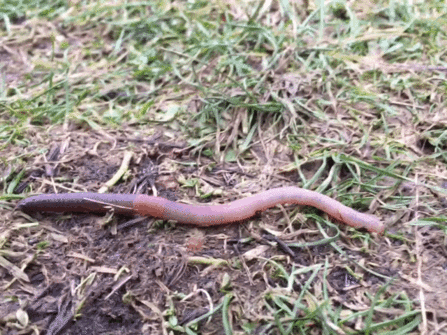Go Wild for Worms!
(C) Alan Price
This year’s Wild About Gardens challenge from the Royal Horticultural Society (RHS) and The Wildlife Trusts is: Go Wild for Worms! The lowly worm is essential to life. It spends its life beneath our feet – it turns the soil, allows it to breathe, recycles and enriches it. Worms are the gardener’s best friend and are essential food for other wildlife. That’s why this year we’re asking people to help worms and watch their garden flourish from the ground up by creating compost heaps, feeding the soil and reducing hard surfacing like paving.
“The early bird gets the worm. The early worm gets eaten.” Norman Ralph Augustine.
Did you know?
- Worms are vital food for toads, birds, beetles, shrews and badgers - you name it!
- The UK has 29 different species of worm
- A worm can eat its own weight in soil in one day and their burrows help the soil
Ellie Brodie, Senior Policy Manager of The Wildlife Trusts says:
“Charles Darwin revered worms and thought few other animals played so important a part in the history of the world. We’re hoping gardeners will choose to create a compost heap or go to one of our events and learn to love worms. Pulling up the paving in your front garden would make a big difference too – and would also help a host of other wildlife to thrive!”
Helen Bostock, a wildlife advisor at the RHS says: “It’s easy to overlook the humble earthworm but they really are the gardener’s best friend. They play a vital role in creating good soil structure and fertility, essential for healthy plants, and provide food for creatures such as hedgehogs, frogs and blackbirds that help keep unwanted pests at bay.”

(C) Tom Hibbert
We’re asking people to help worms and watch their garden flourish from the ground up by creating compost heaps, feeding the soil and reducing hard surfacing like paving.
Go Wild for Worms:
- Reduce waste, recycle veg peelings and create a compost heap
- Feed your garden with compost and organic fertilisers
- Attract hedgehogs, beetles and centipedes to your garden to control pests
- Dig up your paving - let the earth breathe and plants grow
- Contribute to Earthworm Watch research or the OPAL Soil and Earthworm Survey
- Pen a wormy poem and take part in our competition
Download wormy inspiration and details of our competition at www.wildaboutgardens.org.uk. See our events page for worm championships and other wormy activities. Subscribe to the Wild About Gardens e-newsletter for updates and wonderful wildlife gardening ideas.
